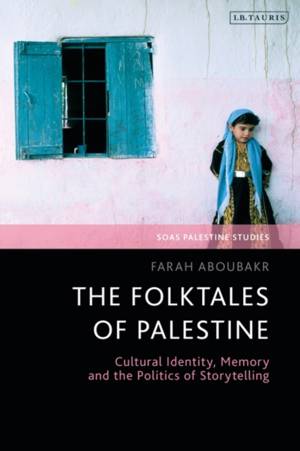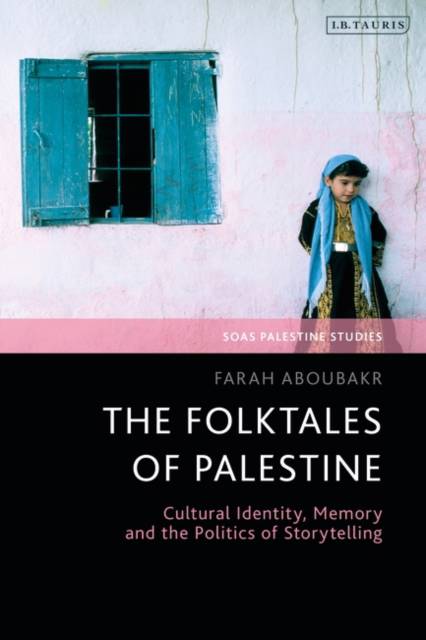
- Afhalen na 1 uur in een winkel met voorraad
- Gratis thuislevering in België vanaf € 30
- Ruim aanbod met 7 miljoen producten
- Afhalen na 1 uur in een winkel met voorraad
- Gratis thuislevering in België vanaf € 30
- Ruim aanbod met 7 miljoen producten
Zoeken
The Folktales of Palestine
Cultural Identity, Memory and the Politics of Storytelling
Farah Aboubakr
€ 271,45
+ 542 punten
Uitvoering
Omschrijving
Folktales are instrumental in ensuring the survival of oral traditions and strengthening communal bonds. Both the stories and the process of storytelling itself help to define social, cultural and political identity. For Palestinians, the threat of losing their heritage has engendered a sense of urgency among storytellers and Palestinian folklorists. Yet there has been remarkably little academic scholarship dedicated to the tradition.
Farah Aboubakr here analyses a selection of folktales edited, compiled and translated by Ibrahim Muhawi and Sharif Kanaana in Speak, Bird, Speak Again (1989). In addition to the folktales themselves, Muhawi and Kanaana's collection is renowned for providing readers with extensive folkloric, historical and anthropological annotations. Here, for the first time, the folktales and the compilers' work on them, are the subject of scholarly analysis. Synthesising various disciplines including memory studies, gender studies and social movement studies, Aboubakr uses the collection to understand the politics of storytelling and its impact on Palestinian identity. In particular, the book draws attention to the female storytellers who play an essential role in transmitting and preserving collective memory and culture. The book is an important step towards analysing a significant genre of Palestinian literature and will be relevant to scholars of Palestinian politics and popular culture, gender studies and memory studies, and those interested in folklore and oral literature.Specificaties
Betrokkenen
- Auteur(s):
- Uitgeverij:
Inhoud
- Aantal bladzijden:
- 256
- Taal:
- Engels
- Reeks:
Eigenschappen
- Productcode (EAN):
- 9781788314268
- Verschijningsdatum:
- 21/03/2019
- Uitvoering:
- Hardcover
- Formaat:
- Genaaid
- Afmetingen:
- 155 mm x 236 mm
- Gewicht:
- 544 g

Alleen bij Standaard Boekhandel
+ 542 punten op je klantenkaart van Standaard Boekhandel
Beoordelingen
We publiceren alleen reviews die voldoen aan de voorwaarden voor reviews. Bekijk onze voorwaarden voor reviews.








